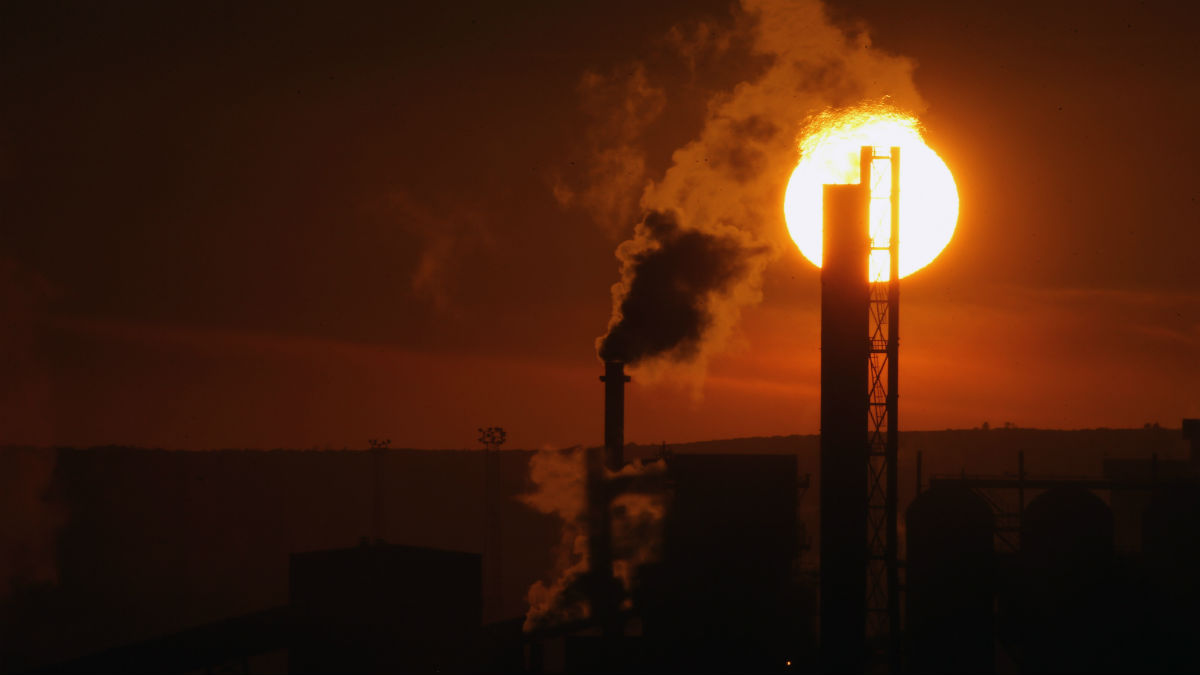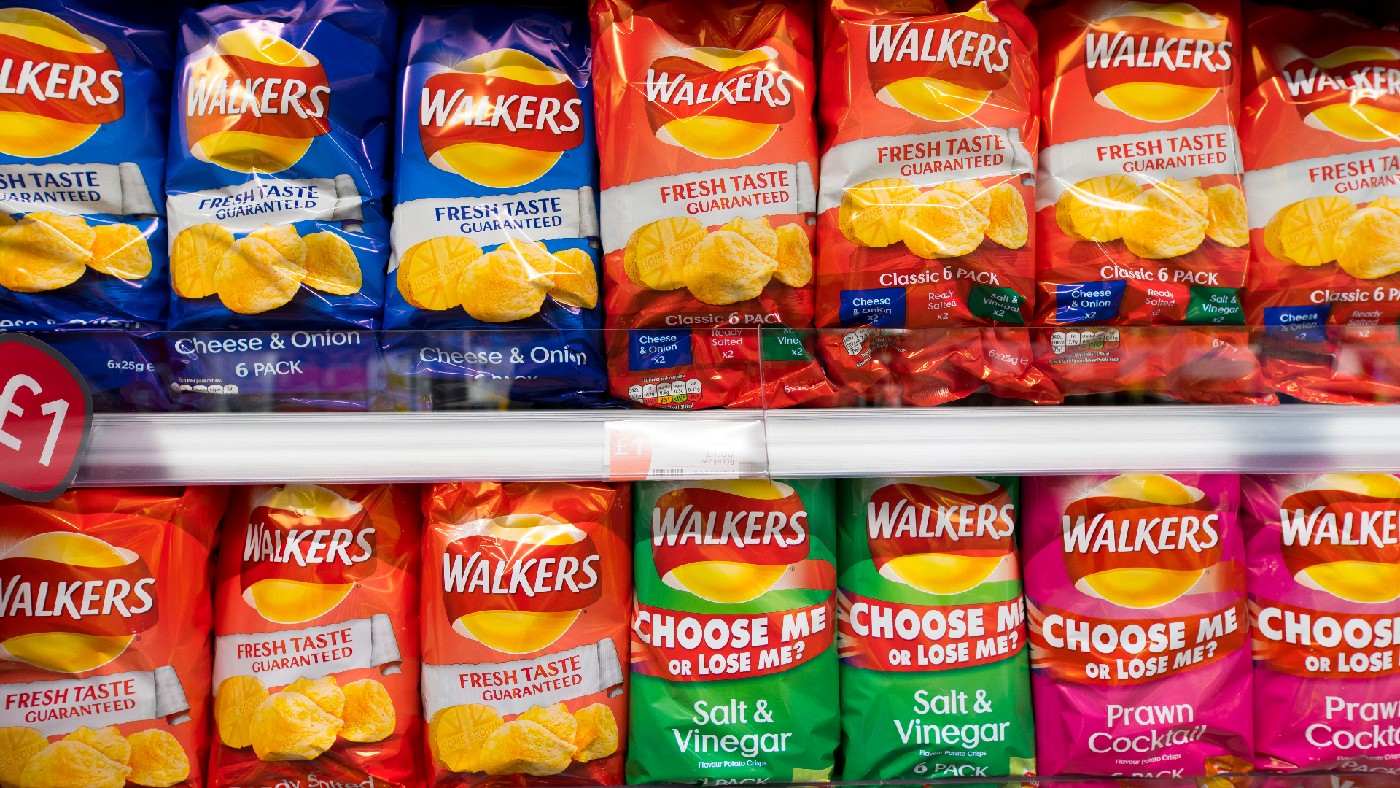Tata Steel strikes £550m deal to solve pensions riddle
Agreement will clear path for company to merge UK assets with ThyssenKrupp of Germany

A free daily email with the biggest news stories of the day – and the best features from TheWeek.com
You are now subscribed
Your newsletter sign-up was successful
Steel crisis: has the UK government let down industry over dumping?
11 February
After putting itself at the forefront of the fight to protect the British steel industry, the government is under fire again for not doing enough to prevent firm failures and job losses.
Latest criticism follows the revelation by Business Secretary Sajid Javid (pictured above) that a proposal to remove a European Union rule limiting the punitive import duties that can be imposed on Chinese producers was blocked by the UK. The Prime Minister's office defended the move as a refusal to engage in "protectionism", while lobby groups branded the decision "galling".
The Week
Escape your echo chamber. Get the facts behind the news, plus analysis from multiple perspectives.

Sign up for The Week's Free Newsletters
From our morning news briefing to a weekly Good News Newsletter, get the best of The Week delivered directly to your inbox.
From our morning news briefing to a weekly Good News Newsletter, get the best of The Week delivered directly to your inbox.
What did the government block?
The removal of something called the lesser duty rule, which reduces the levies that can be added to imported goods dumped in Europe. Typically, anti-dumping duties are set as the difference between the market price in the exporting country and the dumped price, but under this rule, they are capped at an assumed EU production price plus a "reasonable" profit margin.
How does this apply to steel?
Last month, after intense lobbying from, among others, the UK government, the European Commission introduced anti-dumping tariffs on steel imports from China, which are said to be the primary cause of the falling prices crippling the sector. Under the rules, these were set at an average of nine per cent, far less than needed to make European steel competitive.
A free daily email with the biggest news stories of the day – and the best features from TheWeek.com
How would scrapping the lesser duty rule help?
Proposals were put forward by the EC to scrap the rule back in 2013, but they have been repeatedly blocked. One of the main reasons for wanting to change the rule is that it does not take account of situations in which producers in an exporting country receive subsidies that make it economically viable for them to continue to flood the market, even despite additional levies.
In the case of steel, it is thought China receives subsidies worth around two-thirds of the cost of production. "According to calculations, the tariff should be more like 66 per cent, not nine per cent," Tom Blenkinsop, the Labour MP for Middlesbrough South and East Cleveland, which has seen its steel industry hit, told The Guardian.
Why did the government block the measure?
The Prime Minister's office said removing the rule would amount to "protectionism" and that if the rules are changed, there are other situations and sectors where higher duties might be applied. Meanwhile, during a select committee meeting yesterday, the Business Secretary said that if duties get "disproportionate, it would have an impact in Britain and elsewhere on consumers of steel… [that would] cost jobs and exports".
A spokesman for the Department for Business, Innovation and Skills added that the rule does not prevent Brussels assuming a higher price for production and setting the tariff at a greater level and that the UK government would continue to push for duties to be raised.
What does the industry say?
Needless to say, it is not impressed. Gareth Stace, the director of trade body UK Steel, said it was "galling" that the UK was not battling against the lesser duty rule, adding: "Anti-dumping measures in the EU do not currently have the teeth to halt this tsunami of dumped steel… Government must support the lifting of the lesser duty rule, otherwise steel manufacturing will be lost in the UK and Europe."
Steel crisis: European ministers warn industry could 'collapse'
8 January
Business Secretary Sajid Javid has added his name to a letter calling on the European Commission to act immediately to prevent a steel industry "collapse".
Co-signed by European business ministers from seven countries, including France, Italy, Germany and Poland, the letter warns that alleged "dumping" on of steel from China and Russia at well below market prices is pushing the sector to breaking point. It adds that "rising job losses and steelworks closures show there is a significant and impending risk of collapse in the European steel sector", says the Daily Telegraph.
Since December, the Commission has been registering imports of various grades of steel from both China and Russia, which means it can apply anti-dumping subsidies retrospectively if it concludes that mass exports of excess steel are being sold at artificially below-market rates.
But amid frustration at the time being taken, the latter demands the European Union's watchdog "cannot remain passive".
Ironically, while the British government is commended as being "at the forefront of the campaign to gain relief for the steel industry", it is also widely criticised for not acting soon enough to bring pressure in Europe or relief at home. It has now secured approval from Brussels to rebate green levies on producers' energy bills and is pledging to use infrastructure projects to increase purchases of British steel.
But industry body Steel UK and companies across the sector would still like to see more done to abate a crisis that has so far claimed around 5,000 jobs in the UK. Some have questioned why, for example, the Hinkley Point nuclear development is not mandated to use British products. There have also been calls for more direct support of the type given in Italy, which may yet be ruled illegal by Brussels.
UK Steel's Gareth Stace told City AM: "I was surprised when I saw the letter but it’s a step in the right direction. [The government] has the opportunity to do something here but there won’t be any immediate improvements. It could still get worse before it gets better."
Steel crisis: UK government vindicated on subsidies
21 January
The European Commission has dealt a severe blow to campaigners demanding more intervention by the UK government to prop up ailing steel producers.
In the latest in a string of rulings targeting illegal "state aid", commissioners have demanded the Belgian government claw back around €211m (£162m) previously handed out to plants owned by the Swiss steel conglomerate Duferco. The money was provided between 2006 and 2011 by the regional government in Wallonia, but it failed to prevent the group mostly pulling out of the country.
The watchdog has also opened an investigation into around €2bn (£1.5bn) said to have been given by the Italian government to Ilva, Europe's third-largest steelworks. The Wall Street Journal says the investigation is focused on support for the renovation of the company's plant in Taranto, which came via loan guarantees and money recovered through criminal cases against former management.
Critics of the UK government have accused it of not doing enough to help embattled producers, which have shed around 6,000 jobs in the past year in the face of a huge influx of cheap steel from China and high costs at home. Brussels granted the UK the right to provide rebates of energy levies but some, including the opposition Labour Party, have said that is not enough.
"It is not too late now, again, to call on the Prime Minister even at this very late stage, this 12th hour, to step in," said Labour leader Jeremy Corbyn back in September, after the closure of the Redcar plant on Teesside. "Other governments like the Italian government have done the same. Why can't the British government? What is wrong with them?"
EU competition commissioner Margrethe Vestager said the measures were designed to prevent "a harmful subsidy race between member states" and that the proper way of dealing with Chinese imports was through anti-dumping laws. But so far, the hefty levies campaigners are demanding to stop imports undercutting local producers have not materialised.
Many steel imports from China and Russia are being registered, which is often a precursor to levies being imposed. Vestager said the EU has 30 anti-dumping measures in place, with ongoing investigations into six other steel products, The Guardian notes.
Steel crisis: Trident subs supplier latest to cut jobs
21 January
A Sheffield steelmaker with a 210-year history that counts the Ministry of Defence among its customers has posted its first ever loss and announced a spate of redundancies.
Sheffield Forgemasters, which supplies parts for the UK's fleet of Trident nuclear submarines, said it will cut around 100 of its 800 staff. The move just one day after Indian-owned Tata Steel confirmed its latest wave of more than 1,000 job losses – and on top of around 5,000 across the sector over the past year.
In its latest accounts for the 18 months to the end of 2014, Sheffield Forgemasters said it had seen a slump in its order books and made a £9.4m loss, the first in a history that dates back to 1805. This covers the period before the worst of the commodity price slump that is taking such a heavy toll on the industry in the UK, Sky News adds.
Steelmakers are being hit by a combination of high costs, a strong pound that makes exports more expensive and cheap exports flooding the market, from China in particular.
The government has secured permission from Brussels to rebate green levies on energy bills and promised procurement contracts through infrastructure projects, but critics say it could and should do more.
Gareth Stace, director of UK Steel, told The Guardian it was "deeply concerning" that the new nuclear plant at Hinkley Point will not be mandated to use British steel. He also said the government working both here and in Brussels needs to push ahead with levies and other measures to stop Chinese steel being dumped on UK markets.
Sheffield Forgemasters chief executive Graham Honeyman also called for support. "When the circumstances we face are so adverse, despite being a fiercely independent company, we have felt compelled… to have to canvass action from government to look at ways they might take urgent measures to regularise the competitive and market environment for UK manufacturers."
Steel crisis: Tata's 1,000 job losses are a 'wake-up call'
18 January
The crisis in UK steel is set to claim another 1,000 jobs, adding to around 5,000 lost across the sector last year.
The BBC reports that 1,050 jobs across several Tata Steel sites are to go, including 750 at the UK's largest steelworks in Port Talbot, south Wales. There will also be redundancies at its mills in Trostre, Hartlepool and Corby.
Around 4,000 people are employed at the Port Talbot site, which is part of Tata's strip products division producing hot-rolled coil steel for a range of industries including the UK's booming car manufacturers. It is thought to have been losing around £1m a day for some time, contributing to £100m of losses across the company's European arm that employs a total of around 17,000 in the UK.
Crucially, it is not part of the long products division that supplies steel for the construction and rail sectors and that is subject to buyout interest from turnaround investor Greybull Capital and sector rival Liberty Steel. Around 1,200 jobs were lost in this unit last year and it hoped a deal could prevent further losses, although wage and pension cuts are expected.
The Sunday Times says the UK government is considering taking an active role in any takeover. In particular, it is looking at supplying taxpayer cash in the form of loans to make up part of the £400m investment Greybull is lining up for Tata's Scunthorpe site. It could also provide money from a regional fund set up to "respond to economic shocks".
News of more job losses should be a "wake-up call again to government", said Gareth Stace, director of trade body UK Steel. Like other industry insiders, he has welcomed steps such as providing rebates of green energy subsidies that are added to factories' electricity bills, but he continues to demand more action such as reducing business rates and adding levies to cheap Chinese steel imports.
"The work it's doing to help us is good, but we need much further action taking place to tackle the imports, the flood of Chinese steel into the UK and the European economy. We need to see government and the European Commission tackling that head on and quickly."
-
 Local elections 2026: where are they and who is expected to win?
Local elections 2026: where are they and who is expected to win?The Explainer Labour is braced for heavy losses and U-turn on postponing some council elections hasn’t helped the party’s prospects
-
 6 of the world’s most accessible destinations
6 of the world’s most accessible destinationsThe Week Recommends Experience all of Berlin, Singapore and Sydney
-
 How the FCC’s ‘equal time’ rule works
How the FCC’s ‘equal time’ rule worksIn the Spotlight The law is at the heart of the Colbert-CBS conflict
-
 Can the UK avoid the Trump tariff bombshell?
Can the UK avoid the Trump tariff bombshell?Today's Big Question President says UK is 'way out of line' but it may still escape worst of US trade levies
-
 Five years on, can Labour's reset fix Brexit?
Five years on, can Labour's reset fix Brexit?Today's Big Question Keir Starmer's revised deal could end up a 'messy' compromise that 'fails to satisfy anyone'
-
 Why au pairs might become a thing of the past
Why au pairs might become a thing of the pastUnder The Radar Brexit and wage ruling are threatening the 'mutually beneficial arrangement'
-
 Brexit: where we are four years on
Brexit: where we are four years onThe Explainer Questions around immigration, trade and Northern Ireland remain as 'divisive as ever'
-
 Is it time for Britons to accept they are poorer?
Is it time for Britons to accept they are poorer?Today's Big Question Remark from Bank of England’s Huw Pill condemned as ‘tin-eared’
-
 Is Brexit to blame for the current financial crisis?
Is Brexit to blame for the current financial crisis?Talking Point Some economists say leaving the EU is behind Britain’s worsening finances but others question the data
-
 How Brexit handed a ‘financial boon’ to former Soviet state Estonia
How Brexit handed a ‘financial boon’ to former Soviet state EstoniaIn Depth Around 4,000 companies have set up shop in member state since UK left EU, prime minister says
-
 Why the UK is suffering a Walkers crisps shortage
Why the UK is suffering a Walkers crisps shortagefeature Production issues have forced snack giant to prioritise most popular varieties